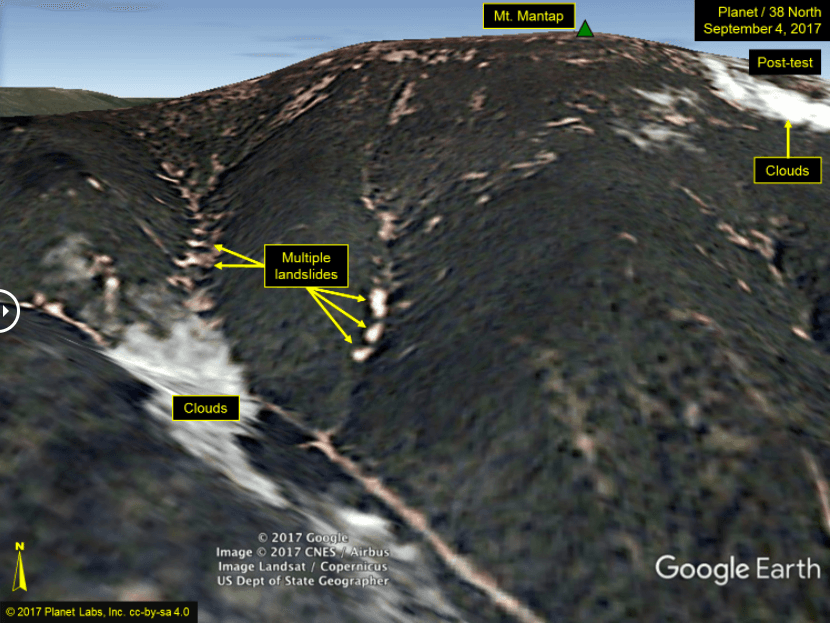The mountain that likely served as the test site for North Korea’s five nuclear blasts is at risk of imminent collapse, according to to Chinese researchers.
If the mountain collapses, it could release radioactive dust into the atmosphere that could drift into neighboring countries and beyond, scientists at China’s University of Science and Technology in Hefei say, Fox News reported.
Satellite images show a series of landslides at the Punggye-ri test site, 38 North reported.
The disturbances caused by the most recent hydrogen bomb test are the largest that 38 North has surveyed so far.

Planet Labs Inc./CC by SA 4.0





